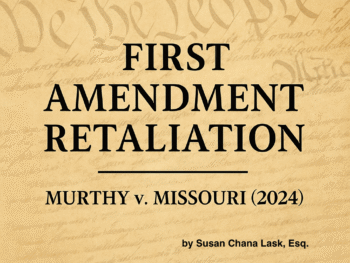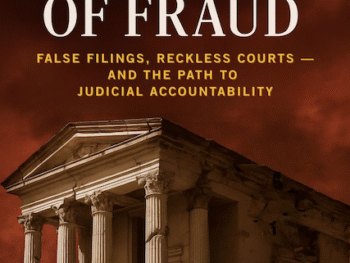Lis on Law: Sleep Aid Ambien Can Produce Adverse Effects
Tina from Pennsylvania ballooned from 110 pounds to 160 pounds and quickly lost count of her size beyond a 15. Waking up to find candy bar wrappers tossed next to her bed became a nightly ritual — however, it seemed very out of character.
Jane, a Florida housewife, took the term “late night eating” to a new low. She began gorging on food in the middle of the night — and it didn’t matter what kind of food she reached for. Jane devoured anything from loaves of breads to raw eggs and uncooked rice.
A Colorado woman once became violent after police found her driving in a nightdress, then urinating in the middle of an intersection — in the dead of winter.
And worse, Brian of Alexandria, Va. faced criminal charges after plowing his Honda Civic into a woman who was loading her son’s birthday presents into a car. That woman, Paris Gebrkidan, lost her left leg.
Although these people live all across the country, many of these cases made national headlines for the same reason: they had all just taken the popular prescription sleep aid, Ambien.
For months, Ambien became cocktail conversation regarding the controversy over whether this miracle sleeping pill turned Americans into zombies. I couldn’t help but notice the continuous headlines and neither could New York attorney Susan Chana Lask. In March 2005 (correction=2006), Lask filed a class action suit against Sanofi-Aventis, the maker of Ambien. She charged that the drug caused her clients to enter a trance-like state in which they acted in harmful ways, engaging in activities where they had no recollection of the preceding events. One person went so far as to eat a buttered cigarette. Lask accuses Sanofi-Aventis of inadequately warning users and understating the incidence of amnesic sleep eating, sleepwalking and sleep driving. In addition to damages, she insists that manufacturers provide stronger warnings about Ambien’s potential dangers. In estimating the size of the class, the lawsuit claims that more than 1,000 persons have suffered injuries or damages as a “direct and proximate result of Ambien.” Following these reports and claims, Sanofi-Aventis issued a statement acknowledging that sleepwalking occurs in 4 percent of the adult population and that “while events of sleepwalking have occurred during treatment with Ambien, these instances cannot be systematically linked to the product.”
Interestingly, just two months after the fury erupted concerning this popular medication, you might remember that Representative Patrick Kennedy inadvertently launched the topic into the national spotlight again. Kennedy rammed his Ford Mustang into a security barrier on Capital Hill at 2:45 a.m., explaining to cops that he was “late to a vote.” Hmmm. Kennedy happened to invoke his “get out of jail free card” as Article I, §6 of the Constitution says that “US Senators and Representatives shall in all cases, except treason, felony, and breach of peace be privileged from arrest during their attendance at session of their respective houses.”
So, Kennedy received a pass, but what about the rest of us? We don’t have the luxury of immunity. It certainly raised my eyebrow that the representative claimed that he had no memory of the incident because of an “interaction between the prescribed amount of Phenergen (an anti-nausea drug) and Ambien.” At that time, the statement seemed in vogue, as Ambien was still center stage in the panic debate over “sleep-driving.”
But my $64,000 question remains: whose fault is it? Who is actually liable for these accidents? Is it Sanofi-Aventis? Or maybe, just maybe, it’s us? People are people and by definition, we all make mistakes. This also means that not everyone used Ambien in the prescribed manner.
Brian of Alexandria took five times the recommended dosage when he maimed Paris Gebrkidan. Doctors had no other recourse than to amputate her left leg. Brian’s attorneys tried to argue the latest in creative defenses called “sleep-driving.” His lawyers argued that he should not be held criminally liable because he was unconscious behind the wheel and his actions were involuntary.
What kind of defense is sleep driving? What happened to not taking medicine and then getting behind the wheel?
Well, prosecutors didn’t buy the defense. They persuaded the court to convict Brian of driving while intoxicated — a misdemeanor — and maiming as a result of a DWI — a felony. The court spoke and held Brian responsible for his actions. “This puts the public on notice of what can occur when you abuse prescription medications,” said attorney Molly Sullivan. I think it’s also noteworthy that Representative Kennedy later revised his version of the events. He dropped the “prescribed amount” line and shortly thereafter headed for rehab.
Of course, people like Tina and Jane have a genuine right to be concerned about their actions and the possible link to Ambien. However, in order to prevail, the class must prove that Sanofi-Aventis failed to warn consumers about the possible adverse side effects. Legally, a drug manufacturer has a duty to warn the public of side effects when such effects are understood to occur, but they are not expected to warn of unknown dangers. In this case, the Food and Drug Administration says the drug’s current warnings are adequate. “While the strange side effects of Ambien are believable, a product liability suit against the manufacturer [is] an uphill battle,” remarks toxicologist David Benjamin. “The warnings say take the drugs while you’re in bed, and don’t take it while you’re driving.”
Several of these examples highlight our need to blame others while we evade responsibility for our own actions. I think it might be time to start owning up to the consequences of our actions. Exceeding the recommended dosage will obviously produce adverse effects — it doesn’t take a toxicologist or rocket scientist to figure that out, and it shouldn’t take a lawsuit to force us to take responsibility. But for now, we’ll have to wait and see whether a judge will hold the maker of Ambien accountable for some of these freak accidents. Lask says the case is currently in the discovery phase of the lawsuit, with over 1,000 claims. But she specifies that her team is carefully investigating each claim to determine whether every complaint is legitimate. (In other words, did each complainant take the prescribed amount? Or is there a possibility the complainant used the drug incorrectly by either exceeding the dose or ingesting it with alcohol?)
Having had two children while working a full-time job, I know how it feels to live on no sleep. It can make you almost walk in to walls and dream about the moment you fall into bed. Relying on Ambien-type medications would scare me, especially if I don’t follow the directions to the letter. How about trying a hot bath and a warm glass of milk?
—————————————————————–
Lis Wiehl joined FOX News Channel as a legal analyst in October 2001. She is currently a professor of law at the New York Law School. Wiehl received her undergraduate degree from Barnard College in 1983 and received her Master of Arts in Literature from the University of Queensland in 1985. In addition, she earned her Juris Doctor from Harvard Law School in 1987. Lis is also the author of The 51% Minority — How Women Still Are Not Equal and What You Can Do About It.









